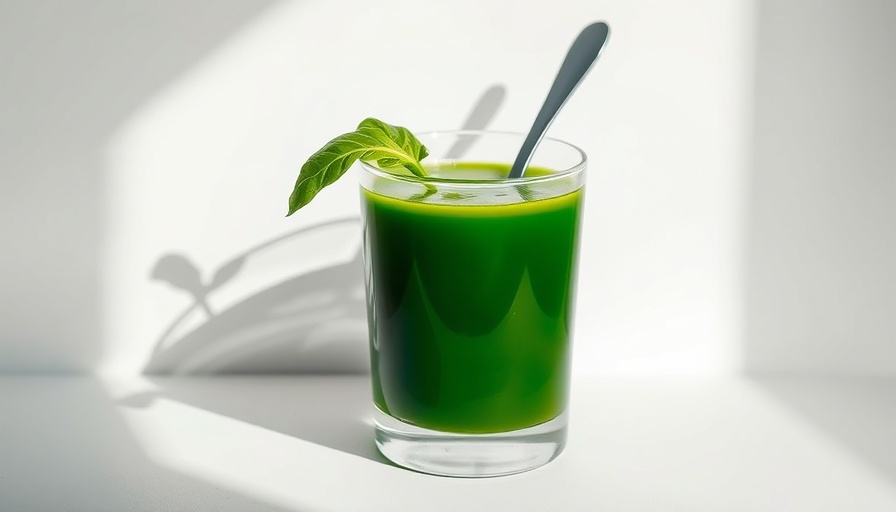
The Surprising Protein Source You Might Be Overlooking
As dietary preferences evolve and awareness about sustainable eating grows, the search for alternative protein sources is more critical than ever. Plant-based diets are gaining traction, but often, people overlook the power of algae. Remarkably, spirulina and chlorella—both types of algae—are emerging as potent sources of protein that can help you reach your daily goals.
New Research Highlights Algae's Protein Potential
Research published in The Journal of Nutrition reveals promising findings about our oceanic companions. In a study conducted by the University of Exeter, participants were given either spirulina, chlorella, or fungal-derived mycoprotein after a resistance training session. The results showed that consuming spirulina and chlorella significantly increased amino acid concentrations in the blood, crucial for muscle recovery and synthesis.
Why Protein Matters More Now Than Ever
With people living longer and seeking healthier lifestyles, understanding protein's role in muscle maintenance and repair is pivotal. Howard University nutritionist Dr. Kelsey Alston notes, “Protein is vital not just for muscle growth but also for recovery post-exercise. For anyone engaging in regular physical activity, ensuring optimal protein intake is essential to support muscle health.”
Environmental Benefits of Algal Protein
The sustainable nature of algae presents another compelling argument for incorporating it into your diet. Traditional animal farming methods contribute significantly to greenhouse gas emissions and deforestation. Conversely, algae require minimal land and water to cultivate, making them an environmentally friendly alternative. “Algae could play a vital role in food security and sustainability,” states eco-nutritionist Dr. Angela Marcus.
Actions You Can Take to Integrate Algae into Your Diet
The findings from recent studies suggest that adding spirulina or chlorella to smoothies, bars, and other recipes can be an easy way to diversify your protein sources. Those looking to enhance muscle building without relying on meat should explore algae-based supplements available in health stores. As with any dietary change, it's advisable to consult a healthcare provider, especially if you have underlying health conditions.
With the trend moving towards plant-derived proteins, the acknowledgment of algae as a legitimate player in the protein market may signal a transformative shift in dietary habits. Whether you're a fitness enthusiast striving to optimize your protein intake or simply exploring healthier options, algae offers a potent, sustainable solution.
 Add Row
Add Row  Add
Add 




 Add Row
Add Row  Add
Add 



Write A Comment